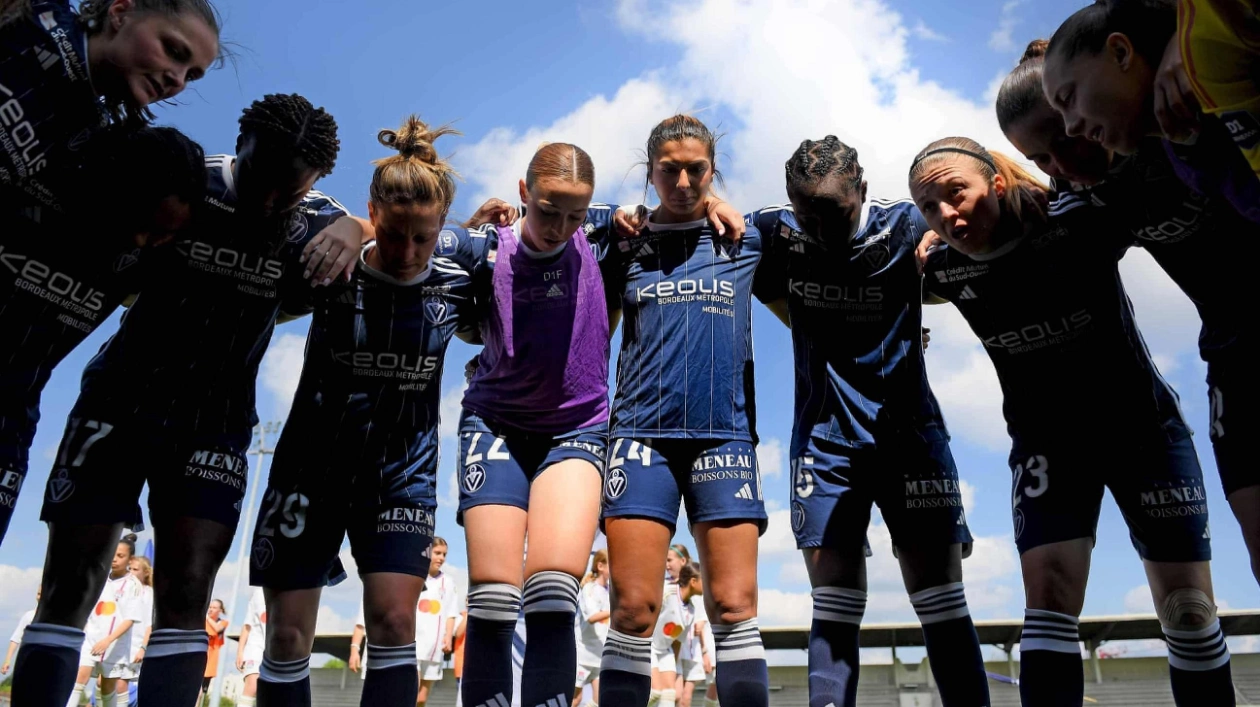The inaugural matchday of the newly rebranded French women’s top flight, now called the Première Ligue, took place last weekend. Backed by a larger budget, the league aims to foster professionalism and, as stated by its president, Jean-Michel Aulas, to establish France’s top tier as the “premier professional women’s league in Europe”. While the initial games showed familiar results with dominant wins for Lyon, Paris Saint-Germain, and Paris FC, one notable absence was evident among the 12 participating clubs.
Before finishing second-to-last in May, Bordeaux had been a shining star in French women’s football. Their consecutive second-place finishes in 2021, led by Khadija Shaw’s 22 goals, earned them a debut in the Champions League, where they were eliminated by Wolfsburg in the second qualifying round on penalties. However, the club’s financial woes, including significant debts accumulated over recent years, led to their administration in August and the loss of their professional status. While the men’s team has resumed play in the fourth tier, the women’s team seems to have been sidelined.
During the summer, there was hope that the women’s team might be spared, as UK-based investment firm Sphera Partners appeared poised to take over. Those hopes were dashed in early September when the DNCG, France’s financial watchdog, excluded the women’s team from national divisions due to insufficient guarantees. Sphera Partners subsequently withdrew from negotiations after deciding not to appeal the decision. The firm cited “time constraints with administration” as a reason for not pursuing the “complex deal”.
Bordeaux’s owner, Gérard Lopez, stated that while he was willing to invest more personally than anyone else, he could not focus on saving both the men’s and women’s teams simultaneously. Consequently, the Seconde Ligue will feature only 11 teams this season. Bordeaux, with only a few players still under contract and no announcement regarding the team’s leadership, has yet to start their campaign in the regionalized third tier.
A group of Bordeaux supporters has launched a Socios project, inspired by fan-ownership models in Spanish and Latin American football, aiming to rescue the women’s team with local authority and private investor support. For now, the team remains in limbo. Former players like Charlotte Bilbault and Julie Dufour, along with prominent figures such as Lyon striker Ada Hegerberg, have expressed indignation. Hegerberg called the situation a “disgrace” given that 2024 is the year of the Olympics in France.
Aulas and the French FA president, Philippe Diallo, had attempted to bring in investors but were unsuccessful. Aulas emphasized the need for private investment and local authority commitment to develop the economy of women’s sport. Bordeaux captain Andréa Lardez, who has been with the team since its inception, described the summer as an “emotional rollercoaster”. She noted that the remaining senior players are waiting for their contracts to end to move on, highlighting the issue of women’s teams being secondary to men’s teams when cuts are necessary.
Lardez believes Bordeaux’s situation reflects the slow progress of French women’s football compared to its neighbors. She hopes the team’s plight serves as a warning and prompts improvements in players’ working conditions, as there is still no collective bargaining agreement in place. Whether the Première League can prevent similar cases will be a long-term test of its effectiveness beyond a mere rebrand.






